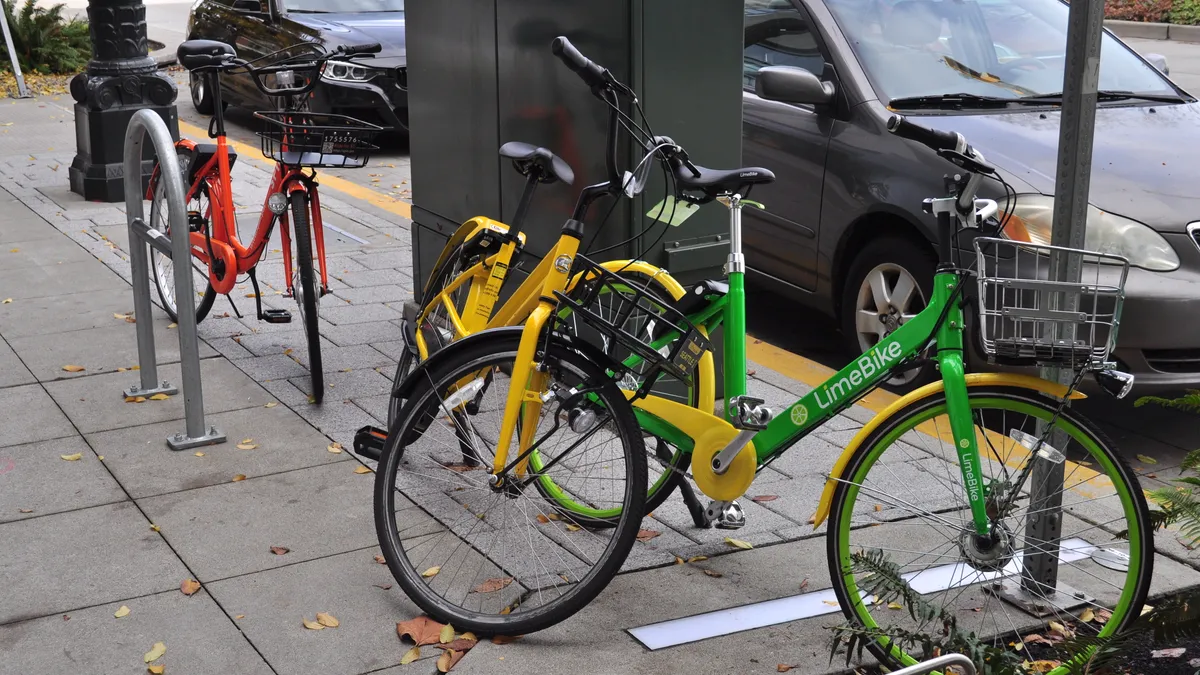Dive Brief:
- Today, the City of Coronado, CA will begin impounding dockless bikes left on the city's streets, sidewalks, alleys, parks or beaches, according to The San Diego Union-Tribune.
- City Manager Blair King told the Union-Tribune that police officers will tag the handlebars of the bikes with notices for the respective company to remove them within two hours. If the company does not oblige, the bike will be impounded and the company will be charged a $45 fee per bike.
- King said this is the quickest way to rid the city of the bikes, which are not permitted in Coronado. It is believed the bikes end up in the city after folks ride them in from the neighboring cities of Imperial Beach and San Diego.
Dive Insight:
The bikes that end up in Coronado — most of which are from companies LimeBike, ofo and Mobike — have reportedly been declared a "public nuisance" by the city. Coronado has not offered operating licenses to any dockless companies, therefore little can be done to solve the problem outside of penalizing the companies, or the riders themselves.
In an emailed statement to Smart Cities Dive, a LimeBike spokesperson said, "We have abided by their process, and have not distributed any bikes in Coronado. Any LimeBikes located in that area would be from San Diego residents and visitors using them to ride to Coronado. We have, and will continue, to conduct a comprehensive outreach program to ensure we’re addressing any challenges and best serving the needs of the community."
Katie Stevens, ofo's head of public policy for the West Coast, also noted in a statement the company appreciates the city's concerns and has "already suggested ways in which we can more closely collaborate without requiring the use of public resources." Those suggestions were outlined further in a letter ofo submitted to the City of Coronado, which says the city's notification system gives dockless companies "very limited opportunity to rectify," and also "unnecessarily places law enforcement in a position to tag bikes rather than handle more pressing public safety needs."
Whether or not Coronado's enforcement strategy is the most efficient or appropriate, it underscores the larger issue around dockless bike littering — and is an example of how some cities may start to take action. Since the dockless bike market developed less than a year ago, cities have been plagued by a "clutter conundrum" as the bikes occupy sidewalks, waterways and even trees. Though the companies have ramped up educational efforts — LimeBike even produced a comical video to demonstrate proper bike parking — the issue is still apparent.
Other dockless offerings such as scooters have also come online recently, which may potentially add to the "littering" problem. As the dockless revolution hits its one-year mark, cities and the shared mobility industry will be closely watching for improvements to take place.












